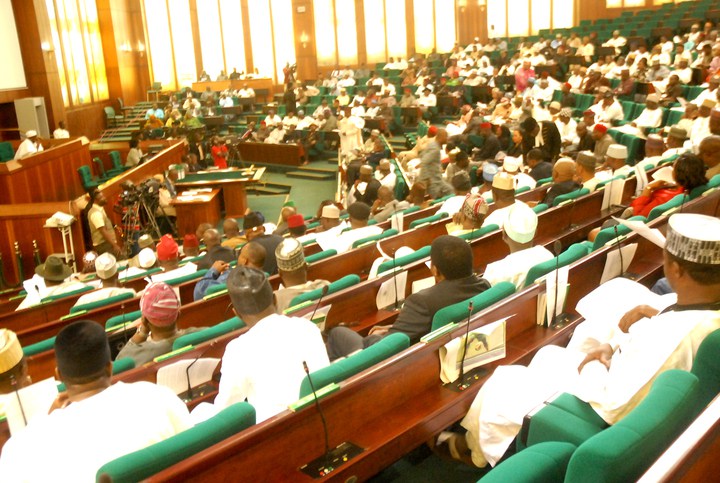Drama ensued Monday as House of Representatives Ad-hoc Committee, National Agency for Food and Drug Administration and Control (NAFDAC) and Nigerian Bottling Company (NBC) failed to agree on the use of additives in soft drinks, relevance of sunset yellow and reduction of benzoic acid.
The disagreement took place in Abuja before the first public hearing by the House of Representatives Ad-hoc Committee investigating the production and distribution of drinks manufactured by the Nigerian Bottling Company, NBC, Limited and other drinks produced or marketed in Nigeria.
The House of Representatives Ad-hoc Committee expressed worry that benzoic content in Nigeria was much higher than what was obtainable elsewhere in the world, noted that while it was 250milligram per kilogram in Nigeria, it was 150mg per kg in the UK.
To this end, a member of the Committee, Hon. Uko Nkole advised the agency to be proactive in its efforts to rid the country of unwholesome products.
But, National Agency for Food and Drug Administration and Control, NAFDAC admitted that it has no adequate laboratory tools to conduct test on all foods and drinks imported or manufactured in Nigeria to certify them fit for human consumption before their release into the market.
The agency also said some additives and preservatives such as benzoic acid, sunset yellow, among others, used in most drinks manufactured or imported into the country were safe for consumption.
NAFDAC made the submission at the first day of a public hearing by It will be recalled that the House of Representatives had, through a motion sponsored by Rotimi Agunsoye (APC, Lagos), recently queried why NAFDAC refused to enforce the ruling of a Lagos High Court which ordered it to mandate the NBC to include a warning that the content of the bottles cannot be taken with Vitamin C.
At the hearing, Agunsoye said it was incumbent on the National Assembly to ensure that consumables in Nigeria were healthy.
“As a responsible lawmaking institution, we are determined to ensure a Nigerian environment that produces consumables and products that are healthy for consumption and satisfies international health standards and best practices.
”This development calls for serious legislative investigation to help us nip such development in the bud before it becomes a serious danger to our national well-being,” Agunsoye said.
In her submissions, Mrs. Simidele Onabanjo, a Deputy-Director who represented the Acting Director-General of NAFDAC, Mr. Ademola Mogbojuri, agreed that preservatives were healthy.
Onabanjo said: “Any certificate of analysis issued in the NADAC laboratory will address the physical parameter, the appearance, the colour, the taste. It will address the chemical composition, the microbial composition, including the yeast, ecolag, the bacteria. It will also address contaminants like pesticides and heavy metals.
“You will agree with me that we do not have the facility to carry out all these things at ones. As a result, we identify key paramaters in any product or else, it will take forever to release a product in the market. It will hinder the ease of doing business.
”There are so many things that we could consider in a product but since this product has been registered and we are just checking for conformity, we might not need to go through the whole hub when we are doing routine analysis. Some of these analyses are done holistically, comprehensively at the registration.
“Nigeria is one of the stringent regulatory agencies as it concerns food. In the UK and America, they do not register food products. They self-regulate and then periodically, they regulatory authorities visit and sample.
”However, in Nigeria, we try as much as possible to ensure that all products registered in Nigeria, imported or made-in-Nigeria, even those that are sub-standard are analyzed. Yes, it is true that we have a lot of challenges and constraints in the agency, even though we didn’t put it in the document. We didn’t want shoot ourselves in the foot.”
“They are actually preservatives. Asorbebic acid is a fortificant, it can an anti-oxidant and it can be preservative. Those things are added like a stablizer so that the drinks will not break down in trade. That’s the essence of their being there. The contention now is that in some countries, the standards are lower while in Nigeria, ours is a bit higher. While the disparity.
“It has do with whatever that’s adopted in the country. But because there still a bit of contention, they are reviewing it. We cannot unilaterally as an agency take any other country if it has not been adopted as a Nation. Standards are developed by the SON but there are other organizations that participate in setting these standards,” she said.
But her position did not go down well with the lawmakers who interrogated the relevance of sunset, a colourant they said had been proven to cause Attention Deficit Hyperactivity Disorder, ADHD, in children and consequently banned in some countries such as Finland, Sweden, United Kingdom and Australia.
In the same vein, the Consumer Protection Council, CPC, Director-General, Babatunde Irukari, while certifying the components fit, said sunset yellow could be done away with while benzoic acid level could be reduced.
“Sunset yet is not that relevant. Benzoic acid should be reduced. Because, they are able to separate everything, hyperactivity in children is a problem. They have figured out the problem. We have not,” he said.
But the Operations Director, North of NBC, Aliyo Paiko disagreed with the CPC, saying the reduction of benzoic acid was possible but that it could be harmful to the health of consumers.

